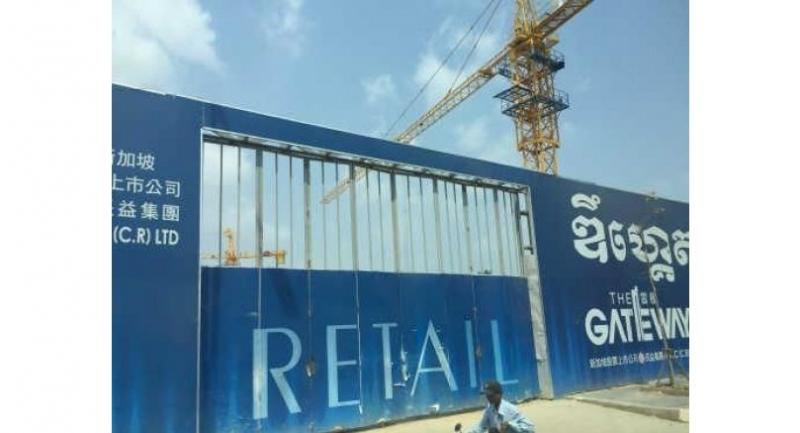Cambodia’s estates look to reap benefits of Thai ‘Industry 4.0’ drive

THE GOVERNMENT’S “Thailand 4.0” development drive is seen as providing a potential windfall for Phnom Penh Special Economic Zone Plc (PPSEZ), whose industrial-estate operators hope manufacturers from Thailand and other countries with production at the Industry 1.0 or Industry 2.0 stage will shift their operations to Cambodia’s economic zones.
PPSEZ, which was founded in 2006, runs two industrial estates – one in the capital and the other in the Poipet Special Economic Zone.
The Phnom Penh estate comprises three phases, and the company is now developing the third of these to prepare for new tenants.
There are 83 tenants in the first two phases of the estate, with a combined investment value of US$500 million (Bt17.5 billion).
Three Thai firms have manufacturing operations at the industrial estate: Betagro, SVI and President Foods.
The majority of investors at the Phnom Penh SEZ are Japanese, most of which produce auto parts or garments, said Ardisak Boeprasert, investor relations manager at PPSEZ.
While PPSEZ has not set a particular industry theme and few Thai firms are currently invested in the Phnom Penh SEZ, the company believes that with low production costs, mainly due to Cambodian wages, the estate will gradually attract more foreign investors from Thailand and elsewhere that want to save on their manufacturing costs, he explained.
PPSEZ is the fourth private |firm to list on the Cambodian stock market, having joined the bourse last year in order to raise funds |to expand its second SEZ – in Poipet, near the Thai-Cambodian border.
The Poipet SEZ is expected to open for industrial-estate operations in the middle of this year, with the aim of catering to light industries and serving Thai and other international manufacturers seeking local tax incentives.
The zone is not far from Thailand’s industrial estate in the Sa Kaeo SEZ and, with Thai labour costs higher than those in Cambodia, some labourers may be tempted to seek work at the Sa Kaeo estate, the investor relations manager said.
However, the company does not expect that to be a major issue for the industrial estate at Poipet.
Tax exemptions
With Thailand moving toward the Industry 4.0 level, while Cambodian manufacturing is at the Industry 1.0/Industry 2.0 stage, manufacturers at that level that want tax benefits and labour-cost savings would be more likely to prefer the lower-cost environment at the Poipet SEZ to the Sa Kaeo SEZ, Ardisak said.
Qualified investment projects in Cambodia’s SEZs are either not taxed on their profits for a maximum period of nine years or can benefit from a special depreciation rate of 40 per cent, as well as receiving exemption from import and export duty.
Moreover, they are exempt from value-added tax on the import of construction materials, production equipment and machinery, and on production inputs.
There is also a tax exemption |for property, as well as one-stop services from the Cambodian |government, such as company registration, import and export permits and construction permits.
PPSEZ is, however, facing two big challenges in securing new investors, which its executives are attempting to resolve, he said. One is the instability of supply and high cost of electricity, and the other is high logistics costs.
Ardisak said the high cost of electricity was the biggest issue, and the company therefore realised that it must find a way to reduce costs for tenants.
With electricity now costing $0.18 per kilowatt, compared to $0.10-$0.11 in Thailand, it could be a barrier to potential investors at the industrial estates.
The solution could well be for the estates themselves to generate their own power, he added.
Meanwhile, PPSEZ is expanding its revenue from non-industrial land sales and leases, setting up a construction and interior-design business to cater to investors in its zones.
By 2020, revenue from non-industrial land and sales is expected to account for 50 per cent of the company’s income, from 20 per cent currently, he said.





